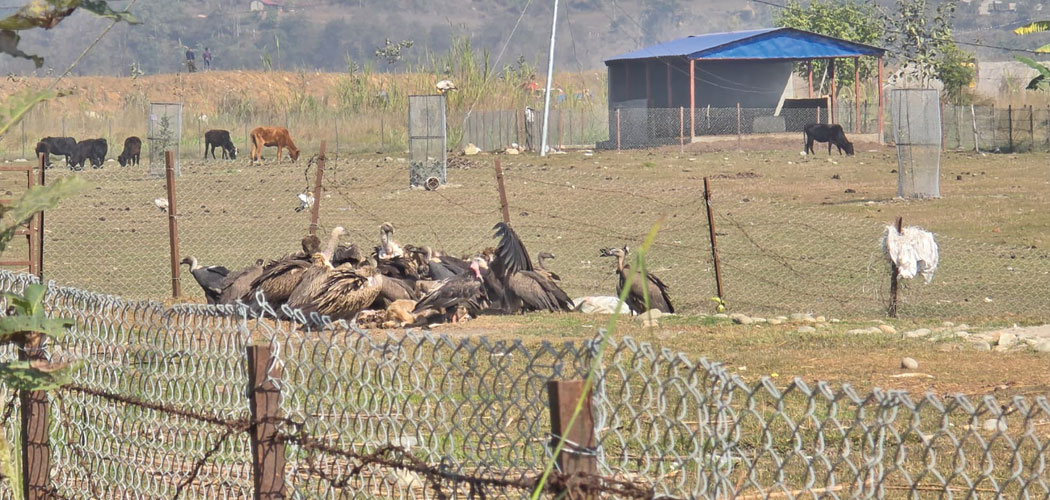
SATV Tanahun, Jan. 23:The under-construction 140-megawatt Tanahun Hydropower Project has built a 'vulture resting place' to protect vultures.
Under the Wildlife Conservation and Public Awareness Project, a vulture resting place has been built on the premises of the Cow Protection Centre in Dumsi Bhateri of Vyas Municipality-10, to prevent the habitat of the endangered vultures from being affected by the project.
The project has installed five telescopic poles on the premises of the centre using local resources and equipment, according to a press statement of Tanahun Hydropower Limited.
An iron arm has been placed on each pole for the vultures to sit on.
The arm has been covered with wood to make the iron arm safe without any negative impact on the vultures. A wooden cap has been placed on the top of the pole on which the vultures can sit safely.
The poles have been installed to allow the vultures to rest after coming for food and after eating.
A cow protection centre is being operated on the banks of the Madi River, about 6 kilometres from Damauli Bazaar, under the initiative of Vyas Municipality.
The old cattle in the Vyas Municipality area are being brought to the centre, which is operated on approximately 200 ropanis of land.
As the cattle die, they are kept in a pit there, vultures often come there for food. Vultures, large carnivorous birds under the predatory bird group, do not hunt themselves and only eat the meat of dead animals.
Earlier, vultures were forced to feed unsafely at the protection centre. Due to the 33 kV transmission line passing through that place, vultures that came for food and flew after the food used to get caught in the line and die.
To prevent vultures from hitting the transmission line, the project has changed the location of the pit where dead cattle were dumped and installed poles near it to build a resting place, read the press statement.
This will help in raising public awareness about vulture conservation and protecting their habitat, thereby developing it into a vulture safe area.
In addition, the dam to be constructed by the project will disrupt the natural flow of the Seti River, endangering the lives of native and Shahar fish species found there. For its protection, a fish conservation plan has been implemented in the upper coastal area of the Madi River, approximately 45 kilometres from the confluence of the Seti and Madi Rivers, according to the project.








